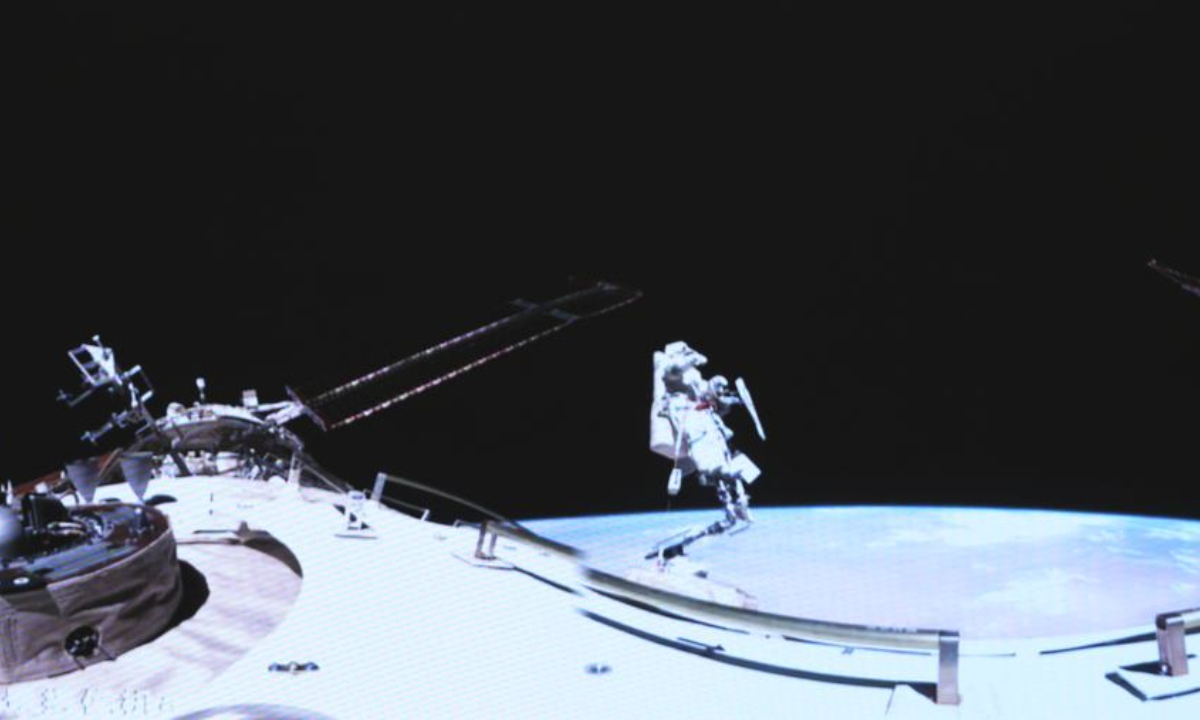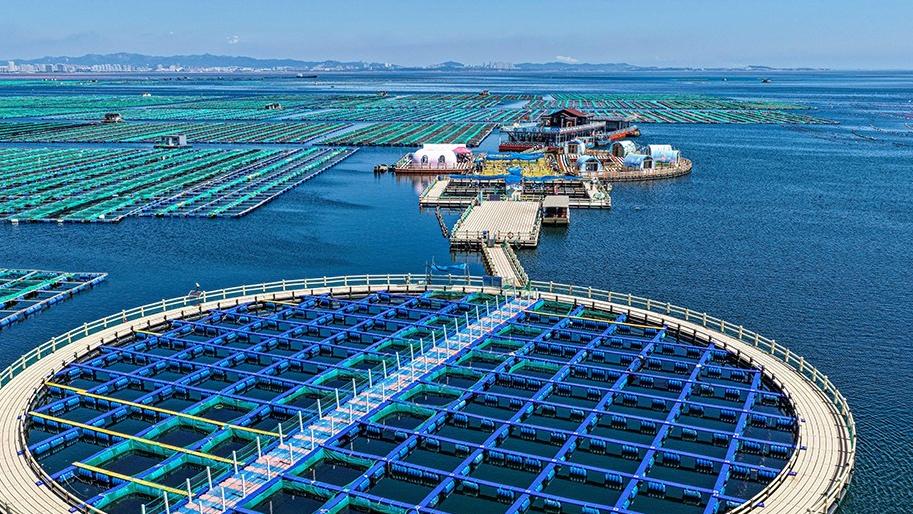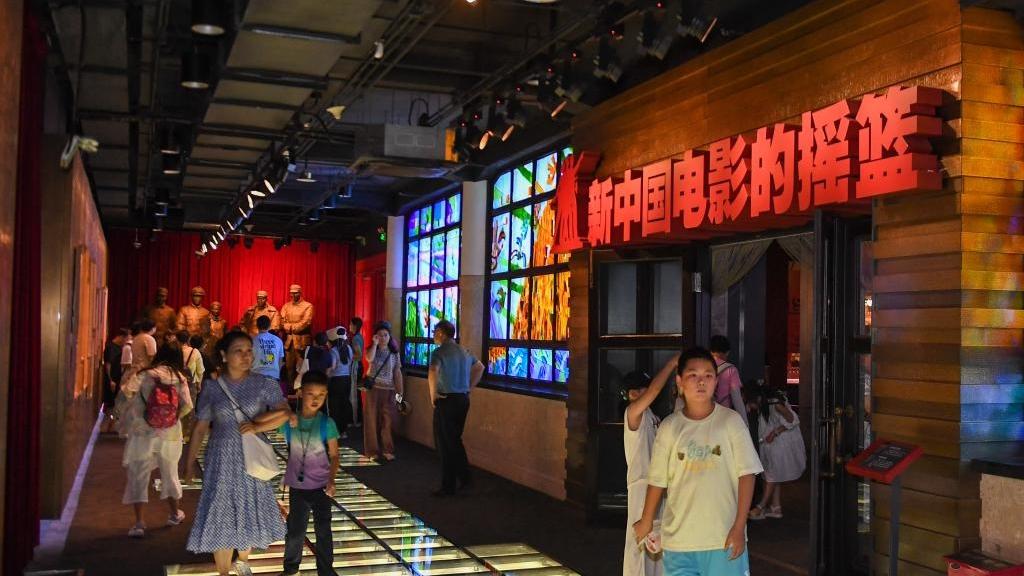Shenzhou-20 spacesuit B supports 20 EVAs, meets lifespan goal

This screen image captured at Beijing Aerospace Control Center on Aug. 15, 2025 shows Shenzhou-20 astronaut Chen Dong performing extravehicular activities outside China's orbiting space station. The Shenzhou-20 crew aboard China's orbiting space station completed their mission's third series of extravehicular activities on Friday, according to the China Manned Space Agency (CMSA).(Xinhua/Li Yanchen)
The extravehicular spacesuit B, worn by astronaut Chen Dong on Friday during the third series of extravehicular activities (EVAs) of the Shenzhou-20 crew aboard China's orbiting space station, has supported 20 EVAs, Xinhua News Agency reported, citing the China Astronaut Research and Training Center.
The suit thus became the first of its kind on China's space station to achieve the lifespan extension goal of supporting 20 EVAs within 4 years.
According to Zhang Wanxin from the center, the extravehicular spacesuit B of the Chinese space station has been used in relay by 11 astronauts during eight crewed missions. Dynamic and precise evaluations show that the suit remains in stable condition, providing strong support for improving the quality and efficiency of spacesuit engineering applications and ensuring the routine implementation of spacewalks, Xinhua reported.
The Chinese space station's extravehicular spacesuit is the second-generation "Feitian" suit. By design, its service life is defined as "three years of on-orbit storage with no fewer than 15 spacewalks," according to Xinhua.
The suit is also China's first in-orbit flight product to undergo life-cycle assessment and extended use, the report noted.
At the beginning of 2024, the on-orbit suits were approaching the designed limit of 15 spacewalks in three years. To accurately assess their remaining service life, the research team formulated a scientific and reasonable life evaluation and health monitoring program, along with in-orbit testing methods. By thoroughly analyzing both on-orbit and ground-based test data, and carrying out extensive verification tests at the material and product levels, they achieved dynamic and precise assessments of the suits' health and service life, according to Xinhua.
On July 15, Tianzhou-9 cargo craft delivered a new batch of supplies to China's space station, including two sets of second-generation Feitian extravehicular spacesuits, identified as D and E, per the report.
Extravehicular spacesuits D and E have been unpacked and inspected, and are in good condition. They will be gradually put into use in future EVAs, Zhang said.
Compared with the country's first-generation Feitian extravehicular spacesuits, the second-generation extravehicular spacesuits feature key technological breakthroughs. They have a longer lifespan, are safer and more reliable, and more efficient in supporting astronauts' operations, providing strong support to the EVAs during the construction and operation of China's space station, said the report.
"Spacesuits are essentially small, one-person spacecraft," Wang Yanan, chief editor of Aerospace Knowledge magazine, told the Global Times on Monday. "Their main functions are to provide a pressure and air environment suitable for human survival, maintain airtightness, and protect astronauts from space radiation and micrometeoroid impacts."
Wang said the new-generation spacesuits advance technology in three key ways. More durable materials are used to extend lifespan and improve their ability to withstand damage, and manufacturing processes are refined to maintain airtightness and consistent performance after repeated use.
He added that the suits also feature a soft-armor design that insulates against heat, blocks radiation, and shields astronauts from small orbital debris.
Photos
Related Stories
- Extravehicular spacesuit of China's space station supports 20 EVAs
- Tiangong space station taikonauts gain AI support
- China's space station delivers new samples for research
- Feature: Meet planarian, the newcomer to China's space station for life science experiment
- Shenzhou-20 astronauts enter space station
- China announces new life science experiments in space station
- Tiangong researchers to experiment on flatworms
Copyright © 2025 People's Daily Online. All Rights Reserved.









